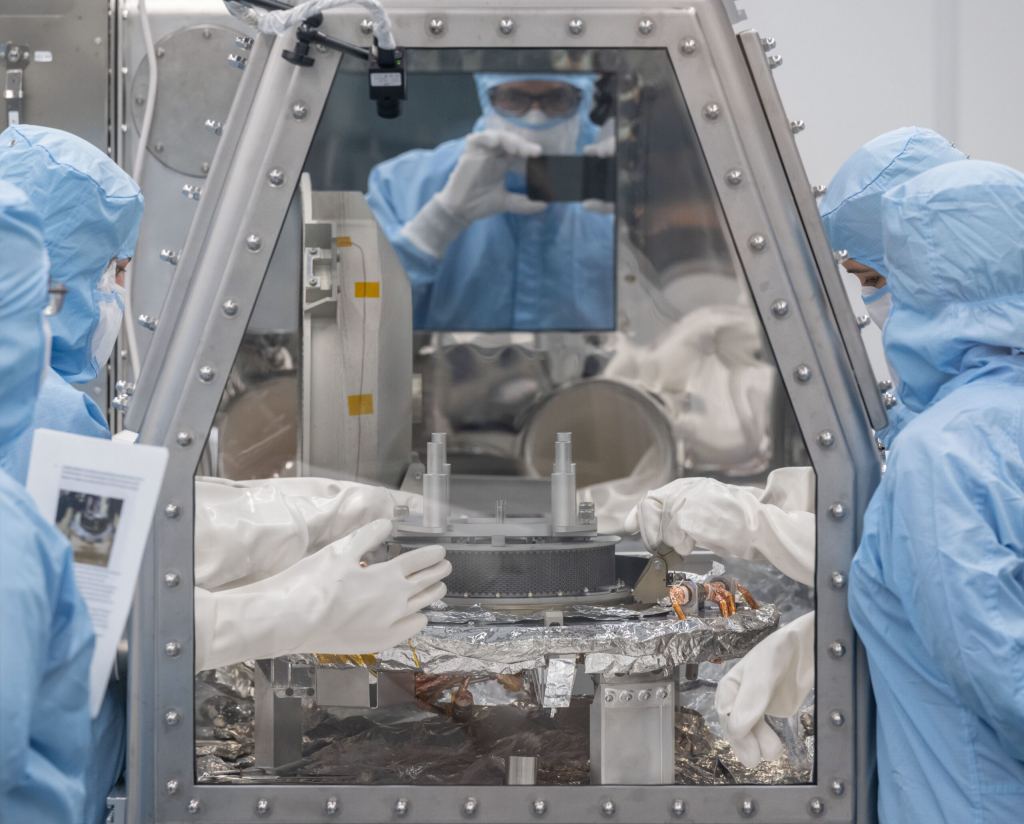On September 24, 2023, NASA’s OSIRIS-REx mission returned a precious sample of rocky material from asteroid Bennu to Earth. The capsule landed safely under its main parachute, but it arrived more than a minute early. The cause: a small drogue parachute, designed to slow the spacecraft down prior to the main chute’s deployment, failed to open. After an investigation into the mishap, NASA believes they have determined the cause of the (happily non-catastrophic) failure.
If all had gone as planned, the drogue chute should have deployed at 100,000 feet, stabilizing the capsule for about five minutes of the descent. At 9,000 feet, the drogue would be cut free, and the main chute would take over.
Instead, the drogue, still packed within the capsule, was cut free early (at 100,000 feet). When the capsule reached 9,000 feet, the drogue was finally deployed, but having been cut already, it simply drifted away, and the main parachute took over.
According to a NASA press release, “inconsistent wiring label definitions in the design plans likely caused engineers to wire the parachutes’ release triggers such that signals meant to deploy the drogue chute fired out of order.”
In other words, the signal intended to deploy the drogue cut the line, while the signal to cut the line instead deployed the drogue.
Investigators believe this malfunction was due to imprecise labeling during the spacecraft’s design and construction. In the capsule design documents, the word ‘main’ was used on the signal side of the apparatus to mean the main parachute, while on the receiver side, ‘main’ referred to a pyrotechnic that fired to deploy the drogue. When the two mains were connected, therefore, the actions of the drogue were set to occur out of order.
For now, the investigation’s conclusion is tentative, pending a test of the capsule hardware. Currently, the capsule is in isolation at NASA’s Johnson Space Center, where the sample material is being processed and extracted. The careful removal and examination of the collected asteroid regolith is the top priority for the mission scientists, and testing the capsule hardware will have to wait until it can be safely removed from containment.

Thus far, the team has collected 70.3 grams of material (well above the mission’s stated goal of 60 grams), and there is still more material within the sampler head yet to be removed.
“The OSIRIS-REx sample is the biggest carbon-rich asteroid sample ever delivered to Earth and will help scientists investigate the origins of life on our own planet for generations to come,” said NASA Administrator Bill Nelson on October 11.
Preliminary analysis, according to OSIRIS-REx Principle Investigator Dante Lauretta, shows that the sample contains water-bearing clay and carbon-rich material.
Comparing the Bennu sample with that retrieved from asteroid Ryugu by JAXA’s Hayabusa-2 mission in December 2020 will give researchers a better understanding of the geologic diversity of near-Earth objects. Like time capsules, samples from these asteroids can help scientists understand the story of Earth’s formation in the early solar system.
OSIRIS-REx was not the first NASA sample return mission to suffer a drogue parachute malfunction. In 2004, the Genesis mission, designed to return a sample of solar wind particles from space, failed to deploy its drogue chute over the Utah desert. In that instance, the failure resulted in the spacecraft crashing, contaminating many of the samples within – though enough were preserved to achieve the mission’s science objectives. An investigation into the Genesis incident determined that a deceleration sensor failed to trigger the parachute.
Press Release: NASA Finds Likely Cause of OSIRIS-REx Parachute Deployment Sequence.